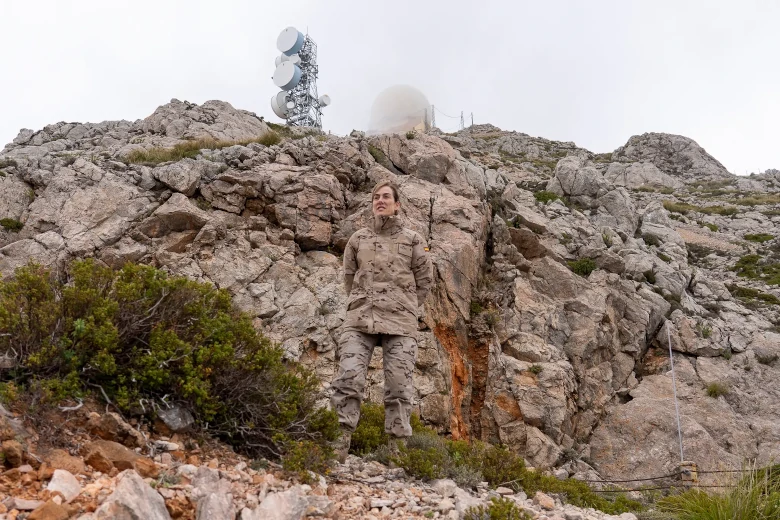
María Cruz Acero poses under the famous ‘Ball’ of Puig Major, which surrounds Mallorca’s aerial surveillance radar. Photos: Piter Castillo.
In her 24 years in the Air and Space Force, Commander María Cruz Acero Ruiz has participated in the international operations ‘Atalanta’ in Somali waters and ‘Sofia’ in Libya, against maritime piracy and human trafficking mafias, respectively. Since August 2023, this 45-year-old from Palencia has been in charge of the 7th Air Surveillance Squadron (EVA) in Sóller, the first woman in Spain to achieve this command. At an altitude of 1,445 metres, the radar of the famous “Ball” of Puig Major guards the airspace of the western Mediterranean 24 hours a day, 365 days a year. They are the eyes that look tirelessly at the sky so that we can feel “totally” safe.
– Is the Western Mediterranean a strategic area in today’s geopolitics?
– The Mediterranean in general is highly unstable due to the many interests that converge in it. From a security perspective, it is the eastern Mediterranean that attracts attention due to the conflicts there. But the western part is and will be an area of geopolitical interest since it is the only exit to the Atlantic Ocean through the Strait of Gibraltar, the link with Africa. The conflicts that concern us enter there, whether it be smuggling, terrorism, illegal immigration, etc. And that can affect stability and security, especially in European countries, where we have welfare states.
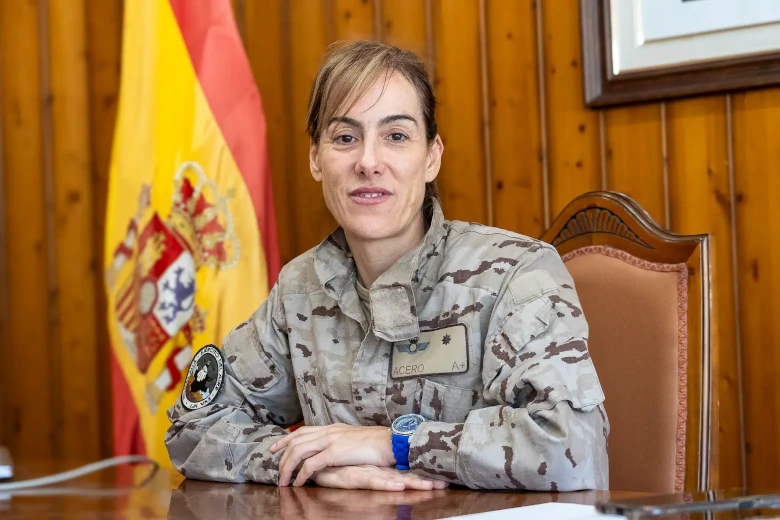
Commander María Cruz Acero Ruiz, in her office.
– What are the functions of the EVA7?
– Our main mission is the surveillance and control of Spanish sovereign airspace, as well as ensuring comms in our area of coverage, which is the Western Mediterranean. Through the radar, we obtain the flight plan emitted by the aircraft’s transponder, called IFF (Identification Friend or Foe), i.e. where it is coming from, where it is going, and what country it is from. We transfer this information to the command centres located in Madrid, Zaragoza, and Las Palmas, where they process this information, assigning them an identification: friend, neutral, or hostile, depending on the country they come from. Special care is taken with those that are not from a friendly country, but they are normally commercial flights that have prior authorisation. If they do not have one, that is when we have to start moving this information to see if they can really fly over Spanish airspace or not. And then the answer is decided.
– Do you have NATO personnel?
– We no longer have foreign personnel stationed here, but we are part of the NATO structure and our radars meet the air command and control requirements of the Atlantic Alliance. Because we are integrated into their air defence system, we coordinate and share information with other countries.
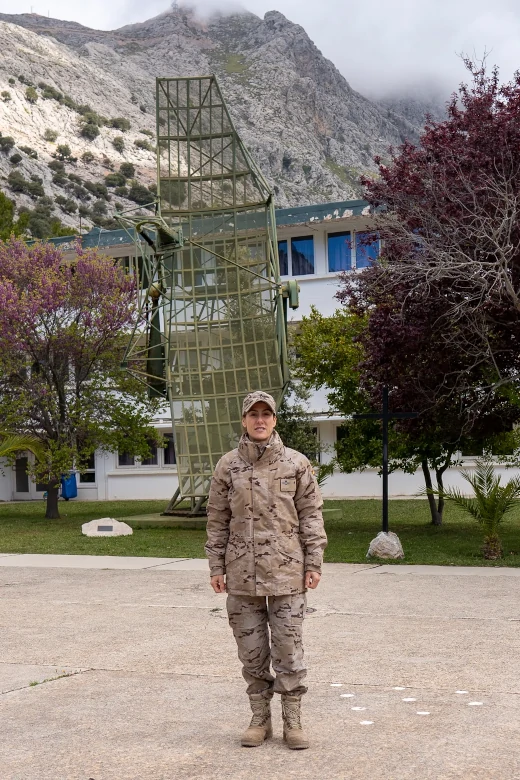
Acero, in the courtyard of the barracks.
– Is there more pressure on your unit due to the wars in Ukraine and Gaza?
– As a static unit with a very specific assigned role, we have no special pressure as such. We don’t feel the concern that ground troops or deployable air units might have. But we are aware that we are in the military and that we are part of international bodies to which our government has made commitments. We will go where our government tells us to go, we are a political tool.
– Are you prepared to face drones?
– Every unit has a security plan to deal with emerging threats such as drones. Modernisation of weapon systems and implementation of the state-of-the-art IFF 5/S system is underway. Early detection is essential to deal with all the complex scenarios we live in today.
– Is there a particular concern for cybersecurity in the military?
– Cybersecurity is a concern in any kind of organisation, public or private. It is true that armies are a prime target for criminal organisations that want to do harm to a government. The military is well aware of that. We all have training in cybersecurity, in how to handle both work equipment and private mobile phones, because there can be a leak on either side.
– What made you join the Air Force?
– When I finished my degree in Music Teaching, there was a television campaign aimed specifically at recruiting women, which said “Why not?” I was attracted, apart from gaining independence, by being able to perform a service to society and have a bit of action, I like the adventure. When you join, you see that at a professional level you can do many things and that it gives you the chance to climb up the ladder, which for people who are a bit ambitious is motivating.
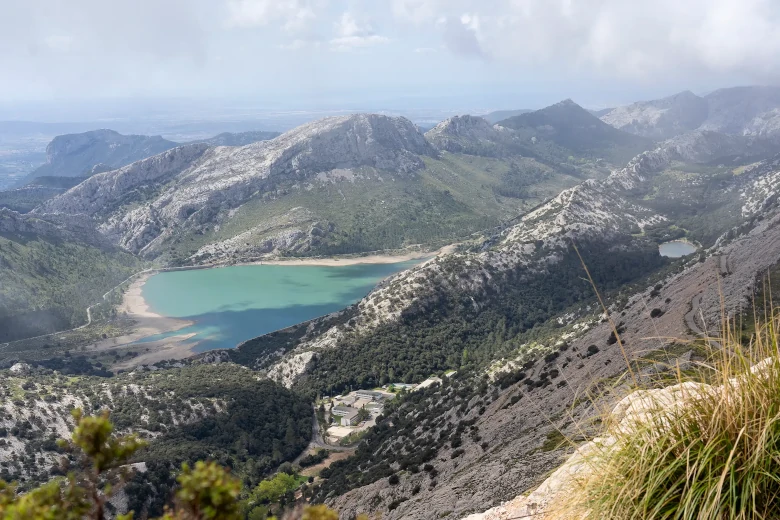
General view of the Puig Major Air Barracks.
– Is it a special responsibility to be the first woman at the head of an EVA?
– Leading a unit is a big responsibility in itself. It is a challenge, there are a lot of resources and personnel that you have to manage and that depend on your decisions. And it’s the same for a man as it is for a woman. That’s why I hope that nobody looks more closely at how I do it because I’m a woman. The responsibility is the same and I think the treatment should be also the same.
– What do you think the presence of women brings to the military?
– In the case of the Army, everything is very much subject to established procedures and delimited by regulations. In most of our posts, being a man or a woman is not going to make a difference. But in the day-to-day, in dealing with people, having a coffee with colleagues in the canteen… I do think we bring a different working environment. Diversity always adds up and where there is diversity I think the work is more successful.
– Is it difficult to achieve a work-life balance in the Army?
– Work-life balance in the army is more complicated than in other areas of the General State Administration of Spain. Although the regulations are exactly the same, military personnel are required to do much more. In addition to our working hours, we have to do watches, services, instructions, operations, etc., and the needs of duty take precedence over work-life balance. A lot of progress has been made in recent years, but in my opinion there is still a long way to go. Also, because of the constant changes of posting, it is not easy to have a family network or someone to lend a hand. If you are dedicated to this life, so much change is not bad, but maybe the person next to you or your children don’t feel the same way, and in the end, relationships usually deteriorate for that reason.
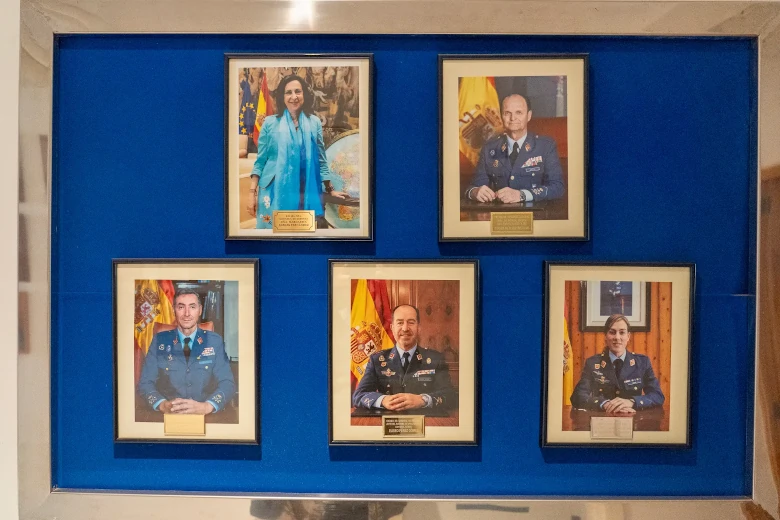
EVA7 command pyramid, led by the Minister of Defence, Margarita Robles.
– How have you adapted to Mallorca?
– Very well. It is one of the best military stations. I had been moving from city to city since I was 21 because I couldn’t find my place and when I arrived on the island eight years ago I said to myself “I’ve found it”. I always tell my daughter that she doesn’t realize how lucky she is to have been born in paradise. And of course, she is not, because she is two and a half years old (laughs).
– Have you run into any difficulties?
– The most complicated thing is the Mallorcan accent in Sóller. If they speak only with you, you can understand them well, but if there are more people talking to each other, you have to sharpen your ear (laughs). On a professional level, the biggest drawback in Mallorca is the lack of accommodation, the rental prices. Two years ago there was one person living in the barracks and now we are practically full. That’s why I have asked for a disused building to be converted into accommodation.
– This interview is an example of the new openness of the Armed Forces. What do you think about it?
– In Spain there is very little military culture and it is something that needs to be promoted. We are part of society and we have to let people know what we do, what we are for, and what our added value to society is. By having an open culture, we can reach more people and we can make them aware that, today, the Armed Forces are necessary in any country.
Air defence manoeuvres in the Balearic Islands
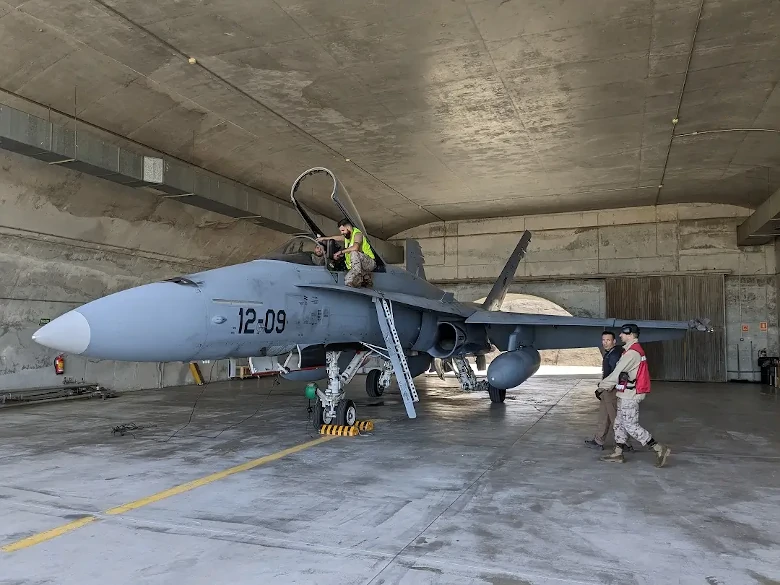
Image of an F-18 fighter from the 12th Wing at Torrejón de Ardoz. Photo: Ministry of Defence.
In March 2023, the Balearic Islands were the scenario for the ‘Eagle Eye 23-01’ manoeuvres, where the Spanish Armed Forces carried out aerial surveillance and defensive missions in response to simulated air incursions. For this purpose, six F-18 fighters from the 12th Wing at Torrejón de Ardoz were deployed, which are “on permanent alert to carry out police and air defence missions against unidentified aircraft attempting to penetrate our airspace”, according to the Spanish Ministry of Defence. They are therefore responsible for intercepting possible threats flying over the skies of the islands and the western Mediterranean that have first been traced by the EVA7 and subsequently identified by the Aerospace Operational Command, which is located in Madrid.



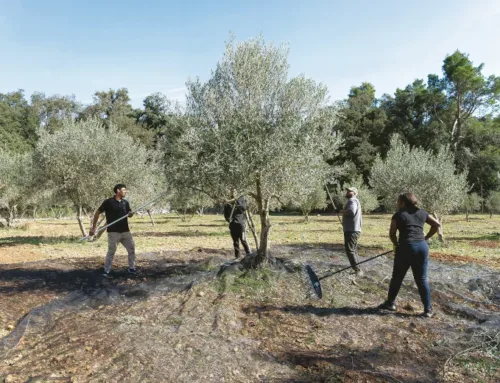
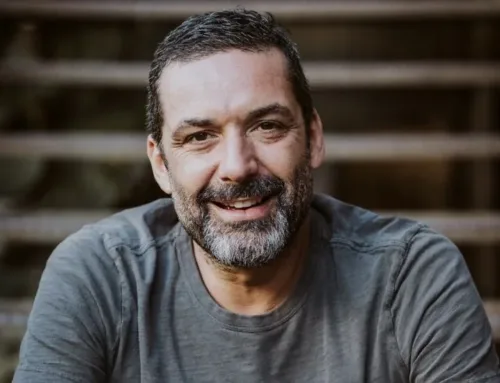

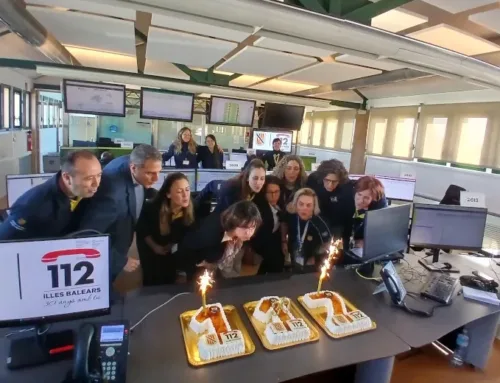

Leave A Comment